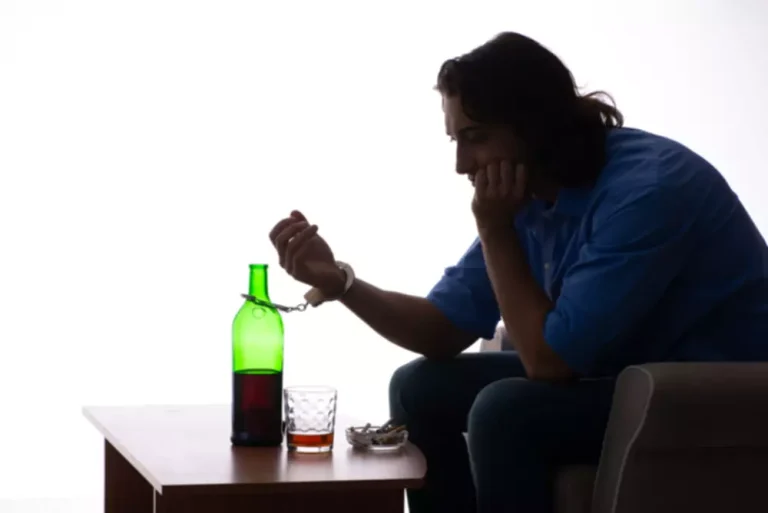How to help an alcoholic Supporting an alcoholic

Additionally, alcohol use can lead to nutritional deficiencies, so it might be beneficial to consider supplements. Consult a healthcare professional to determine if a multivitamin containing vitamin B1 (thiamine), vitamin B9 (folic acid), and vitamin B6 (pyridoxine) would be helpful. Take the assessment and get matched with a professional, licensed therapist. Try seeking help from a sports coach, family doctor, therapist, or counselor. Expose your teen to healthy hobbies and activities, such as team sports, Scouts, and after-school clubs to discourage alcohol use.

“When you drink, we can’t ____”
Oftentimes, alcoholism may co-exist with other mental health conditions such as bipolar disorder, phobias, and anxiety disorders. ADAA provides information about treating a mental health condition, debunks common misconceptions, and publishes stories of recovery. If you are seeking professional help, the organization also has a directory of therapists across the United States. When you’re ready to get help for an alcohol use disorder (AUD), your primary care physician can help you find a treatment center. Your physician knows about your medical history and understands the best options for your recovery.
- Realize you cannot control them and focus on your physical and mental health.
- “People do recover, and your friend is so lucky to have you in their circle of support,” Wallace said.
- This usually also means educating yourself on their addiction andgetting support for yourselfas an impacted loved one.
- However, sweeping the issue under the rug can be damaging to you, your family and the person you’re concerned about.
- Shaming an addict will only make them turn to what coats their emotions, which is likely drinking.
Addiction Resources & How to Seek Help
- Often, individuals battling addiction feel isolated and misunderstood.
- They may also be encouraged to reflect on why they use and how their lives will change by lowering their use.
- It is rare that someone would go to treatment once and then never drink again.
- Friends and family members may feel that they constantly express concerns about a loved one’s substance use but never see any changes.
- The first step is to know that your questions and feelings are normal.
This could include inpatient or outpatient treatment programs, counseling, and therapy services. Facilities like The River Source offer comprehensive treatment plans custom to individual needs, including medical detox, counseling, and aftercare support. More often than not, someone with a drinking problem will choose alcohol over any other option Sobriety they are given, resulting in more stress, frustration and pain. Instead of offering ultimatums, offer advice or options for help. This means doing your research ahead of time and knowing some good programs to refer a loved one to, or being familiar with a professional they can talk to for help.
Setting Healthy Boundaries in Relationships

Many options exist for helping an alcoholic, starting with educating yourself on the disease of addiction. Knowledge about alcoholism equips you for an intervention, finding a treatment center, knowing what to do if they refuse to get help, and taking care of yourself https://ecosoberhouse.com/ throughout the process. After the initial withdrawal phase, continued support and treatment are essential for long-term recovery. Encourage participation in support groups such as Alcoholics Anonymous (AA) or SMART Recovery. These groups provide a community of individuals who understand the journey and can offer guidance and encouragement. Helping someone detox from alcohol is a challenging but crucial process.
The Role of Community Support in Overcoming Addiction

If you or someone you love is struggling with substance use or addiction, The Recovery Village can help. Contact us today to learn more about drug or alcohol detox and our other addiction treatment programs that can work well for your needs. Your loved one will feel more prepared to support for alcoholics begin the recovery process when they have a support system rooting for their success. You can recommend different treatment programs and help them explore their options, but only your addicted loved one can make the decision to go to rehab.

Who should be on the intervention team?
- A successful intervention must be planned carefully to work as planned.
- The counselor provides information about the individual’s drinking pattern and potential risks.
- Remember, recovery is a process, and while challenges may arise, the support you provide can make all the difference in their journey to a healthier, substance-free life.
- Be ready to direct them to a treatment program you think may be a good fit or to online resources.
Make a note about how you feel physically and mentally on these days—recognizing the benefits may help you to cut down for good. It’s much easier to avoid drinking if you don’t keep temptations around. For information on community-based prevention programs, contact your community nursing station, health centre, band council or local regional office. Research shows that most people who have alcohol problems are able to reduce their drinking or quit entirely. Some people are surprised to learn that there are medications on the market approved to treat AUD. The newer types of these medications work by offsetting changes in the brain caused by AUD.
- Here are seven tips to keep in mind as you support someone in their recovery journey.
- Enter your number below and one of the members of our admissions team will call you back shortly.
- BetterHelp is an online therapy service that matches you to licensed, accredited therapists who can help with depression, anxiety, relationships, and more.
- There are also a number of helpful tools you can use, to determine whether your loved one might be showing signs of alcohol addiction.
- When this happens, you must be prepared to set specific boundaries that are healthy for you and them.
- Options can include brief early intervention, outpatient treatment or day treatment programs.